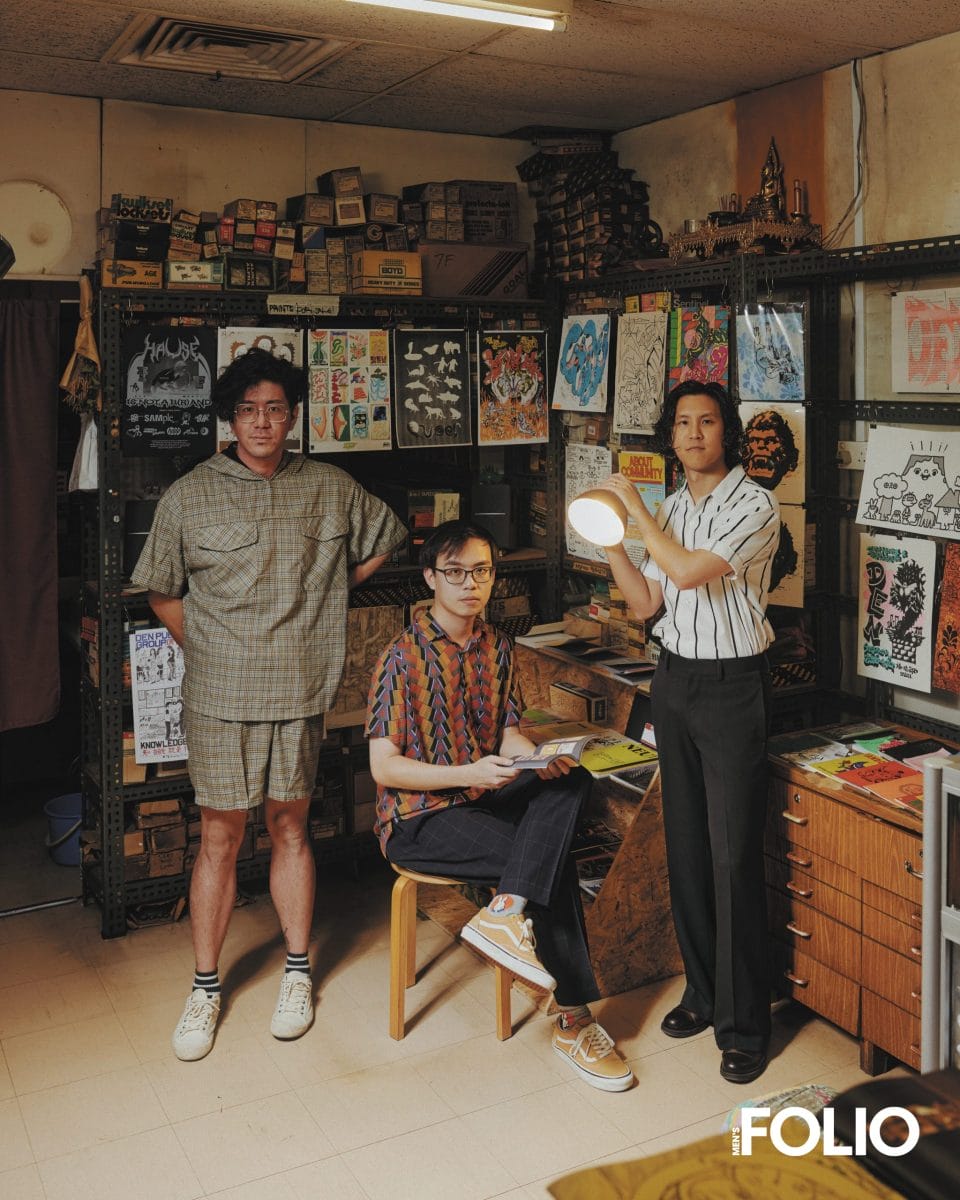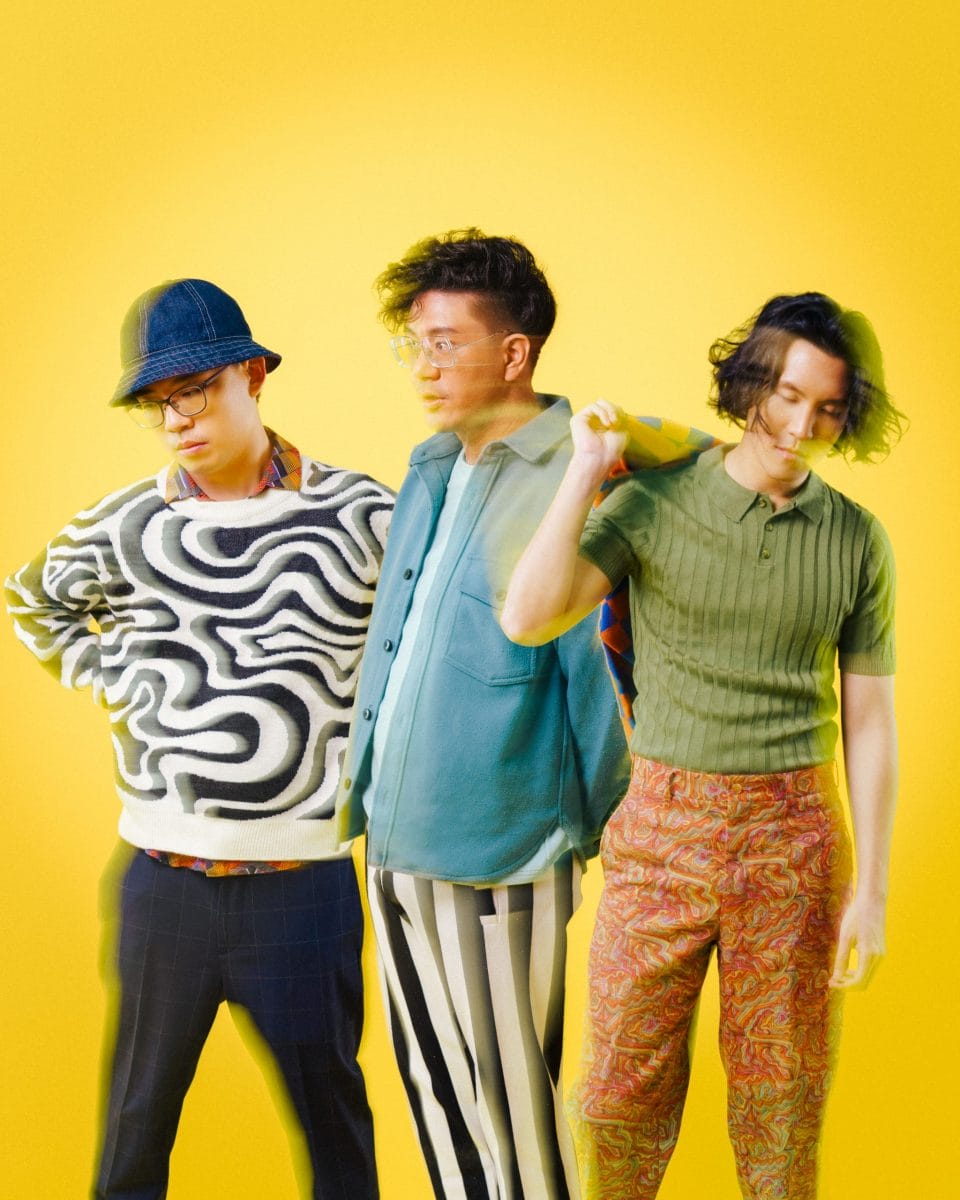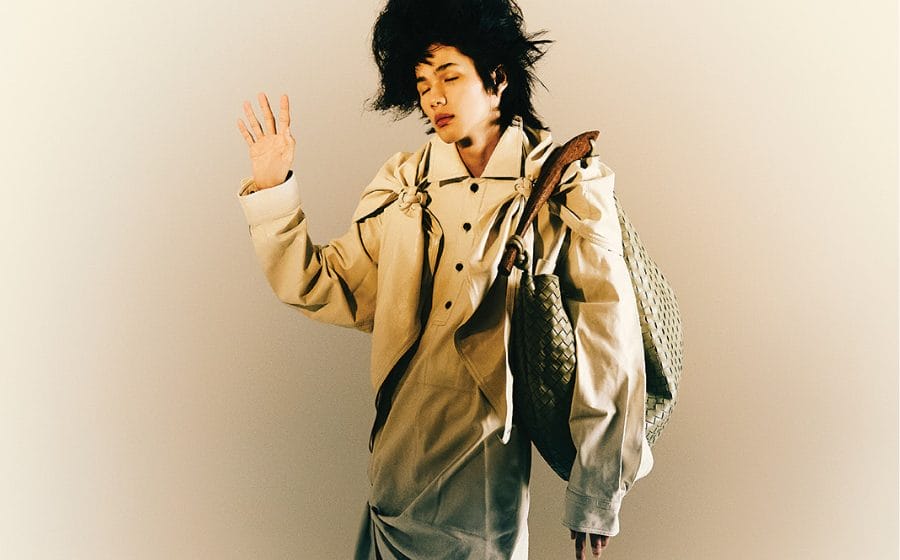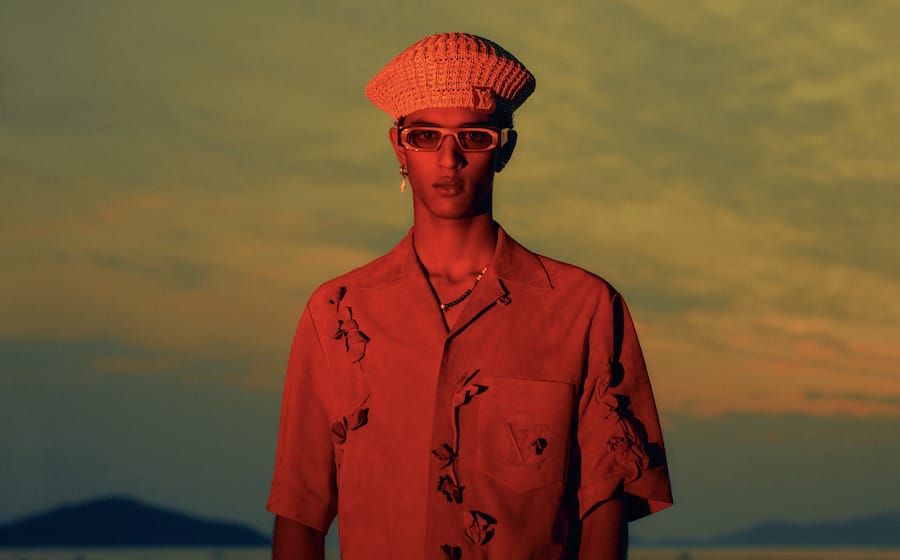 It’s hard to chase dreams that don’t pay the bills. It’s a fact, and an especially undeniable reality for people that live life on the ‘milder’ side. But the will and wisdom of age often pulls through, and for Club Mild, the love for music is more whole than the simple desire to stand on stage and sing to a crowd.
It’s hard to chase dreams that don’t pay the bills. It’s a fact, and an especially undeniable reality for people that live life on the ‘milder’ side. But the will and wisdom of age often pulls through, and for Club Mild, the love for music is more whole than the simple desire to stand on stage and sing to a crowd.
Formerly Take Two and M1LDL1FE, the trio — made up of bassist David Siow, lead vocalist Paddy Ong and guitarist Tan Peng Sing — is one of Singapore’s pioneering acts to spearhead the growth of the local indie and post-punk music scene. Burgeoning as a cover band from the depths of university music rooms to playing pivotal roles in nurturing local talents, Club Mild has come a long way, but further away is their eventual destination — which they have not pinpointed yet.
Just before the release of their latest single “Sun Gazer” and a second line-up change, Club Mild shares about what they’ve learned from actively making music while pursuing full-time day jobs, the pros and cons of choosing this double life, and how they’ve grown to love music in a means comfortably mild, but fulfilling.
Charmaine: I think we need to first address the name of your band before I ask anything else. Why are you Take Two, then M1LDL1FE and now Club Mild?
Paddy: The running joke is that every body of work comes with a new name. But really, the change from Take Two to M1LDL1FE was because the latter felt more representative of ourselves as “mild beings”. Take Two was from our university days.
David: By “mild beings” we mean we don’t really party that much. We indulge in simple, small gatherings. When we go on tour, we just head back to the hotel right after. For full transparency, there is also an Australian band out there called Mild Life. These guys are also starting to expand their reach in Asia, and we are seeing them more often, so we felt the need to distinguish ourselves.
Peng Sing: We either get tagged wrongly or people will see us and be like, Congrats, man. You’re playing at this or that festival. I’m like, yeah it’s cool, but it’s not us.
P: It felt like a good time also because we are one member less. I think it was the same for when we changed to M1LDL1FE. One guy left, we had a new body of work. It made sense then and it makes sense now. We kept a “mild” because that still feels like us. For “club”, there were a few names we shortlisted. Why did we choose this one?
D: We want to build a community I guess. Band all the mild people together. And, of course, it’s like a double entendre. We are not the clubbing sort anyway.
P: Super dorky and sounds like some boy scout club.
C: So that’s how you would describe yourselves from that time?
D: I mean, we were definitely very sheltered from the world and the music industry.
PS: Very disinhibited. When you don’t know what the rules are, it’s like blissful ignorance. It’s like colouring outside the line. If there’s no gig, you play your own. During recess week, when everyone was studying and doing projects, we would go overseas for the entire week, play shows and all on a shoestring with no contracts from festivals. The worse actually happened to us in Spain; the festival was cancelled just as we landed.
P: We were supposed to play in a castle in a small town outside of Madrid but then they didn’t get the license for something and it was “booked out” last minute for some royal wedding. The locals were all upset we couldn’t perform because the festival was supposed to bring tourism in. But they felt bad for us, and let us play in their parade square with a makeshift stage. It was so sweet. We felt very touched.
C: But this didn’t get you guys to pursue music full time. Why continue music while working full time jobs?
D: I think there was never an option to give up (music). My first job gave me about 40 days of leave per year, so I chose to continue this path. Back then I was managing the band before our manager Patrick came in. The question is, do you take a job and then forget about music or, for me it was, take a job so that I can continue doing music? For us, the commonality is choosing something that allows us to still do music. Still pursue music and grow in that way.
P: Being a Singaporean, the financial worries are always there. We’ve all grown up with this narrative of parents and society being at large with creative pursuits, music won’t earn money; we’ve sort of internalised that. But at the same time, there’s always that tension of wanting to do music to create something to fight that digested narrative. So it’s hard to ignore one or the other. We’re just dealing with whatever constraints and living in whatever context that will make the best of it.
PS: After all these years, I realised that even though Singapore has its own special set of constraints, this reality is the same for a lot of other big cities too.
P: Yeah, it’s about realising that it doesn’t have to be an all or nothing thing. You don’t have to view music part-time thing or full-time. As long as you’re still doing it. It is more of like a lifetime pursuit. After reframing that in our minds, we understand how to not feel too down when things are not going as fast, or when music is not financially viable at that moment. Even recalibrating the perception that you’ve not made it, and whatever that metric means.
PS: I think, in the beginning when we started is because we didn’t care. And then into your 20s, you start to care about what people think about you. Now that all of us are crossing into our 30s, it’s back to the I don’t care about what other people think phase. Now we know the rules, how society functions. We are just figuring it out to make sure it’s sustainable.
C: I think it’s true passion to accept that something you love so much cannot be a priority at all times. I feel like that really ties in with your “mild” brand too. On a separate note, I’m sure this “double life” also helps with creative slumps because you get to switch modes too, resting from one and being productive on the other.
P: Yes, because motion begets more motion. Sometimes I wish I could just do music. But then, I find myself not really doing music when I’m free. There’s this inertia that augments itself when you have more time for yourself. But when you’re doing something that makes you go like, I’d rather be doing music than doing this, you end up having the energy to break through the inertia, suddenly having the emotion and momentum to start working on music. So it’s not so much the time, it’s energy and headspace. It’s about learning how to create a conducive environment both within and beyond yourself and how you manage your time and energy to balance it out.
PS: I definitely had to experience that myself to understand. When I was doing my indie label and music full time, I started to feel myself living inside a bubble. Where all this music stuff starts to really get to me. Music very rarely is a life or death situation. But when you’re so stuck in that bubble, it starts to feel that way. It no longer becomes fulfilling or enriching anymore. I love playing the guitar, but I also love business, I love financial accounting stuff, I love data, but I’m also quite geeky. Wearing all these different hats let’s me explore these different parts of society and I’ve come to really enjoy it. I’m working in like a large corporation now and I have this new-found appreciation for bureaucracy. Processes. Horrible, yes, but important at the same time.
 C: Being able to eagle-eye everything, it must have been quite a journey. You really saw both sides of the coin.
C: Being able to eagle-eye everything, it must have been quite a journey. You really saw both sides of the coin.
P: Yes, and in a way it keeps us grounded to the outside world too. Real life so to speak. I won’t say the same for those super famous boy bands or mega pop stars. It’s a whole different world. It is more of like, you put your music in the perspective of life itself or like the journey of life. Then your creativity can come from that place. Those lived experiences rather than concepts of it.
C: Then for the music itself. How has that changed over the years? Have you guys considered venturing beyond indie and into other genres? I know not all musicians consciously choose to create with these categories in mind, it’s just their way of musical expression.
D: We are not one colour. We are like a colour gradient. We fall within a realm but we sometimes take chances too. If artists choose to follow a trendy sound, that’s them. Maybe not even intentionally choosing to. It’s fine. We just want to stay true to what what we think makes stuff click. When you feel something, you write a song, you want to enjoy the playing. That’s one of the key things we focus on. It has to sound good, and we have to enjoy what we play.
PS: But also not becoming too self absorbed. We have this conversation a lot. We want to make it enjoyable for the people that follow us. Make it worth their time, worth their while. So it’s trying to find that balance.
P: It’s a weird thing. Any piece of art that you make, is supposed to be shared. It needs an audience. That’s what makes it, if not it won’t exist, no one listens to it. I mean, it still can exist. But then you’re just making for yourself. So it is sort of balancing that tension between making something that is true to yourself without alienating people. You don’t want to make it, no one gets with it, then say You all just don’t understand my genius. For us, it’s also using that as an internal compass. Does this feel good when you play it? Or does this feel contrived? By now we all know when something doesn’t feel like us or it’s too big of a departure. We do try weird things that will never see the day of light.
D: Straight to the archive folder.
C: Now that you guys have seen the Singapore music scene grow and change. What are some changes or findings about the local music landscape that you feel are worth mentioning?
D: People are more production focused now because we work more on on laptops than with actual instruments. Even in school they teach you how to use GarageBand. It makes me think in a different way. It just means a lot more bedroom producers, and I welcome it. It’s quite nice thing to see. Out of 100, there’ll be one or two good ones. Stand the test of time. Overall, a good thing for the scene. It is just too bad for the other 98. [Laughs]
P: Similar to Dave, I feel like technology has enabled the accretion of art, not even just music, but to be a truly pluralistic thing where you don’t have to label yourself as an artist or musician to create art. Everybody is sort of connecting with the creator within themselves, and in Singapore, music wise, you can see this new generation of bands embodying that DIY spirit: make their own gigs, making own bands, making their own music. They have decided to answer that call within themselves to create something, which is very inspiring, considering all we’ve mentioned previously. The only thing is that local music is still not as part of locals’ lives in all these times, and it’s always been like that for all the different cycles of Singapore music — except the 60s and 70s. There’s not enough spaces for that, for acts that are in between your international sell-out titles and local DIY gigs.
PS: I think people are a lot more stuck in their heads. Everyone’s sort of out of touch with society. It sounds a little bit abstract. If you’re a musician, or an artist, the creation of art is a very insular process. Not just talking about putting yourself out there but when you’re making something, you’re digging deep, you’re looking out to the surroundings for ideas, inspiration, energy. But we’re stuck in our heads the entire time. Social media doesn’t help. Around Singapore, locally, there’s a lot of people doing cool stuff. But they’re doing it alone, in their own bedrooms, or with small, little cliques here and there. I feel like nobody’s really coming out and interacting with each other more.
P: It’s human nature to seek tribes. I get what you mean, social media making you feel the need to perform all the time.
PS: When people are successful we get this crab bucket mentality. You have a bucket of crabs. The moment one of the crabs manages to climb out the bucket, the other crabs will pull it back down. It’s a self-reject-self process.
D: We do what we can. Break the cycle, change mindsets. The only thing we can do is make good shit, celebrate other artists.
P: So I guess for us now, at this point, in having the experiences that we have had, we are very aware of paying things forward. I’m trying to be aware of what things are wholesome, what is healthy and what is toxic — and what we don’t want to perpetuate.
Photography Jaya Khidir
Photography Assistant Natalia Dykes
Once you’re done with this story, click here to catch up with our November 2023 issue.








